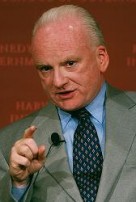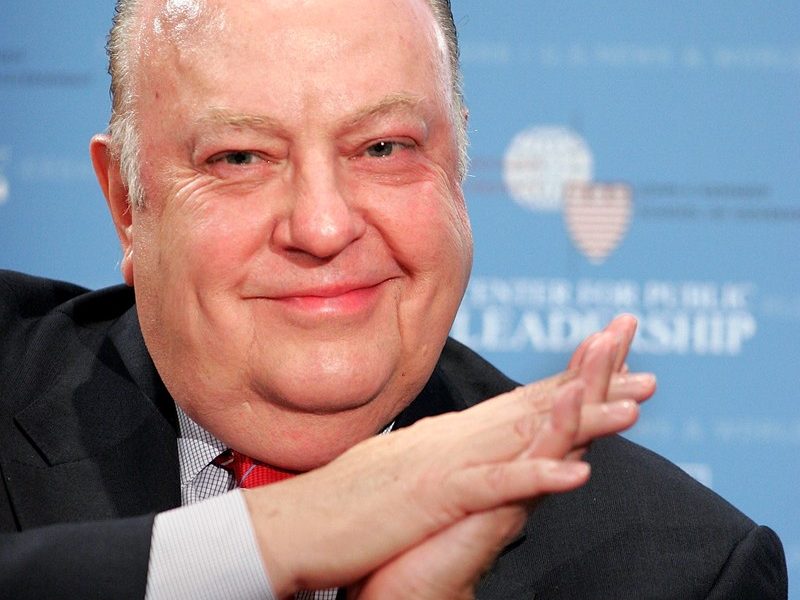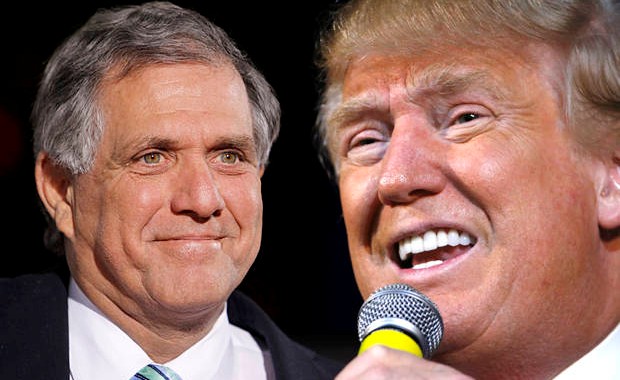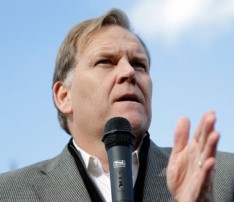Richard Clarke is not a crank.
In fact, he’s one of the key whistleblowers of the last twenty years. His revelatory admissions on 60 Minutes and to the 9/11 Commission marked a significant tipping point in the middle of the Bush years.
Clarke’s candid remarks “blew the whistle” on the conflation of Iraq and 9/11 and, at a time of lockstep adherence to über-patriotic tropes, he was a lifetime member of the national security establishment who openly challenged Team Bush’s motives for invading and occupying Iraq.
Finally, his willingness to be the only official to publicly take responsibility for the “failures” that led up to 9/11 not only reinforced his longstanding credibility, but it gave him a certain gravitas regarding issues of truth and its consequences.
So, when Richard Clarke talks about matters of national security, people should listen.
Right?
Hopefully, journalists are listening—because Clarke reemerged from a period of relative obscurity to speak with some authority about the untimely single-car accident that killed Michael Hastings.
While the mainstream media crowed about “conspiracy theories” swirling around “the internet” in the days after Hastings’ Mercedes turned into a high-speed incinerator, the decidedly staid Clarke talked pointedly with The Huffington Post about the circumstances surrounding the bizarre crash that took the young investigative reporter’s life.
His language was unvarnished and his assertions chilling. Clarke told reporter Mike Hogan that not only is there “…reason to believe that intelligence agencies for major powers” can cyber-attack, hijack and then remotely control a car, but this type of attack guarantees that “…whoever did it would probably get away with it.”
Strangely enough, that seems important.
As does this excerpt from the Huffington Post article:
“What has been revealed as a result of some research at universities is that it’s relatively easy to hack your way into the control system of a car, and to do such things as cause acceleration when the driver doesn’t want acceleration, to throw on the brakes when the driver doesn’t want the brakes on, to launch an air bag,” Clarke told The Huffington Post. “You can do some really highly destructive things now, through hacking a car, and it’s not that hard.”
So, while we were all haggling over the ominous threat posed by domestically-deployed drones, that emerging menace suddenly pales in comparison to the immediate and real danger facing just about anyone who bought a car over the last fifteen years. And if you were an “early adopter” and GM enthusiast, you could’ve purchased an OnStar-ready vehicle as far back as 1996.
Since then, the integration of cars, computers, Bluetooth, mobile phone and satellite tracking (GPS) technologies have accelerated at a heady pace. One simple OnStar feature, for example, is “Stolen Vehicle Slowdown” which allows a remote operator to decelerate a vehicle.
It doesn’t take much to extrapolate, as Clarke did, what might happen to a hacked car driven by a high-value target. Really, with the difficulty in tracing an attack after the car, computers and driver have been “compromised” by a raging inferno, even not-so-high value targets that previously might have escaped retribution are now, thanks to technology, easy prey that might be too tempting to pass up.
Although Clarke eschewed the moniker of “conspiracy theorist” and also made clear he was not necessarily claiming that Hastings’ late model, Bluetooth-ready car had been victimized by such an attack, it is notable that he felt the need to make such a strong case for considering the possibility.
As someone well-versed both in cyberwarfare and the tendency of people in power to “shoot the messenger” when the message is dangerous to them, the timing and veracity of Clarke’s interview stand out as chilling reminders of the dangerous games currently being played with national security, whistleblowers and investigative journalism.
Set against the backdrop of the Associated Press and its struggles with the Obama Administration, the Department of Justice’s naming of FOX reporter James Rosen as a “co-conspirator” and, as McClatchy has reported, the ongoing and wide-ranging war on whistleblowers, the chilling effect of an investigative reporter’s assassination cannot be underestimated.
Investigate journalism, anonymous sources and risk-taking whistleblowers offer the one antiseptic to virulent government power and viral corporate malfeasance—free-flowing information. In an age of precipitous decline for traditional journalism, we also cannot underestimate the importance of Wikileaks and whistleblowing, abandon the defense of Bradley Manning and Edward Snowden or fail to protect those few investigative journalists still toiling to expose “the dark side.”
And Richard Clarke has gone out of his way to tell us and those journalists willing to listen that the tipping point between sunlight and darkness is here. Now it is possible for a government or, it is not hard to imagine, a powerful corporation to simply hijack the car of an inconvenient truth-teller and run them off the road, into a ditch or, alas, into a lone palm tree.
Although the immediate solution may be to get Glenn Greenwald, Matt Taibbi and Jeremy Scahill behind the wheel of a ’75 Mustang II, ’81 Camaro or ’85 Honda Civic, the long-term answer is less clear.
What is clear is that journalists who remain unwilling to challenge the assertions made by the powerful, or fail to actively support and protect those who do so in their stead, are not only unworthy of their positions, but they actually aid and abet character assassination and, if Richard Clarke is to be believed, may tacitly allow the actual assassination of their far more relevant colleagues.
Tweet





'Richard Clarke’s Dire Warning to Journalists' have 3 comments
June 30, 2013 @ 3:35 pm Tom O'Neill
The scenario of an assassination of this sort strikes me as plausible. If one is to go on telling the truth as one sees it, it must be in the awareness that such an act can lead to one’s untimely death. In his plea before an Israeli court, Eichmann stated that when he became fully aware of The Final Solution, he asked for a transfer from the logistical department to which he had been assigned. He said his request was rejected, and implied that any further resistance could have led to his death warrant.
If one believes Eichmann, one might say he was hanged for refusing to be a hero. When one considers possible consequences, one wonders how many of us today are willing to be heroes.
November 8, 2013 @ 8:43 pm matthew carmody
Shortly after 9/11 there was talk on the web about the government’s ability to take control of an airliner in the event of a hijacking and remotely control it, thereby presenting a scenario where the planes that were taken over and crashed into the WTC were remotely controlled.
Farfetched? After watching the deadly results of drones the world over is it so hard to accept that all of this is feasible?
June 18, 2015 @ 3:33 am That Was The Week That Was In Doom July 7, 2013 | Doomstead Diner
[…] played with national security, whistleblowers and investigative journalism.” Read more at: https://newsvandal.com/2013/06/richard-clarkes-dire-warning-to-journalists/ Clarke’s HuffPo interview: […]